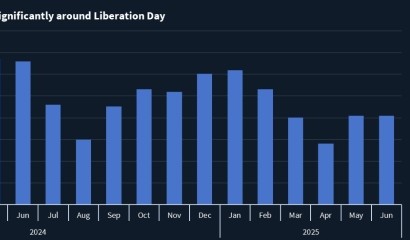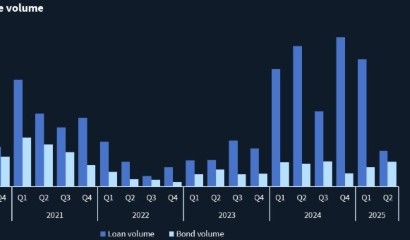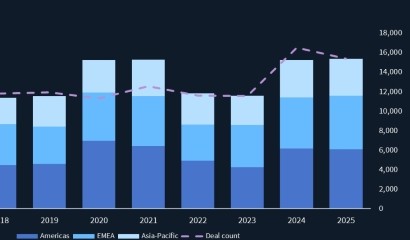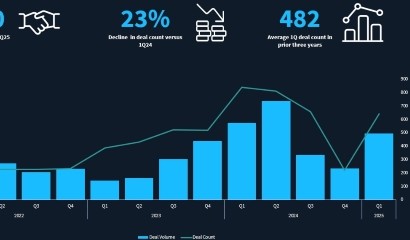CASE PROFILE: Chilean telecommunications company WOM hits Chapter 11 with USD 210m DIP lined up
WOM SA, a telecommunications company formerly known as Nextel Chile, entered bankruptcy protection with USD 1.05bn in debt and the goal of finding a restructuring solution with support from USD 210m in debtor-in-possession (DIP) financing.
Following financial strains brought on by ratings downgrades on its bond debt and obstacles that have hampered its ability to complete a project to build out a 5G wireless network, WOM filed a Chapter 11 petition today (1 April) in the US Bankruptcy Court for the District of Delaware. The case has been assigned to Judge Karen Owens, who has not yet scheduled a first day hearing.
The company
WOM, whose name derives from the phrase “word of mouth,” took its current form in 2015 when private equity firm Novator Partners acquired the assets of predecessor Nextel Chile. Currently the company has 7,000 employees and independent contractors, all based in Chile, according to a first day declaration from Riveron RTS managing director Robert Wagstaff, who serves as WOM’s chief restructuring officer.
Following the acquisition, “WOM has expanded from having virtually no market share to establishing itself as the second-largest mobile network operator in Chile,” said Wagstaff.
Wagstaff said that, as of September 2023, WOM had the largest area of 5G wireless network coverage in Chile, with one million of its customers relying on the company’s 5G broadband internet services. Overall, as of December 2023, the company had more than 8.5 million customers.
WOM holds satellite capacity across four spectrum bands, including 3G and 4G networks in addition to the 5G networks, amounting to 25.8% of all spectrum available for mobile services in Chile. The company provides 4G network coverage to 99% of Chile through national roaming agreements with other mobile companies operating in the country, Wagstaff added.
WOM markets its services through a footprint of physical stores and kiosks across Chile—the company, itself, operates 93 WOM-branded stores while small business owners and other companies operate the remaining 112 stores and kiosks. WOM keeps control of its distribution network through direct leasing of store locations, including those operated by outside entities, said Wagstaff. The company also engages in remote sales through its website, mobile applications, and a call center, with those efforts accounting for 35% of WOM’s sales.
WOM’s 5G offerings stem in part from concessions the company has obtained from Chile’s Ministry of Transportation and Telecommunications, which have helped the company build out a fiber optic network and deploy the 5G program. The company was in 2020 awarded spectrum covering five out of six macro zones to complete its 5G deployment, but Wagstaff said social unrest and COVID-19 pandemic-related disruptions have caused delays and WOM has only competed its deployment in three of the five macro areas.
The company’s work in the other two macro areas continues on, but WOM has also found itself in dispute with Chilean regulators regarding the failure to complete the deployment by an October 2023 target date, Wagstaff said.
The debt
WOM enters Chapter 11 protection with total debt of USD 1.05bn, according to Wagstaff’s declaration. The majority of that debt falls under two series of bonds—USD 356m owed on 6.88% senior bonds due 2024, and USD 293m owed on 4.7% bonds due 2028.
WOM also has USD 39m in debt owed on a securitization facility with EF Securitizadora as trustee, which obligates the company to sell and assign certain of its receivables to EF. Additionally, WOM owes USD 10.9m under a loan with Banco de Crédito e Inversiones.
The company also has obligations to Inter-American Development Bank (IDB) under a receivables transfer agreement that puts WOM in the position of a pass-through agent. WOM is no longer actively selling receivables to IDB, but still owes USD 17.5m under that arrangement.
WOM also identified USD 337m in unsecured debt owed to trade vendors, taxing authorities, employees, and contract counterparties, according to Wagstaff.
The descent
Wagstaff said WOM has faced challenges to its liquidity position over the past year, with the trouble ratcheting up after a March 2023 downgrade by Fitch of the company’s 2024 and 2028 unsecured USD notes, which were issued by co-debtor affiliate Kenbourne Invest. The company also struggled with delays to its 5G network buildout, which has prompted international arbitration with Chile’s government over restrictions surrounding locations for building cellular towers.
That ratings downgrade triggered a margin call on WOM’s CLP and USD derivative contracts, which resulted in cash expenditures of USD 35m between April 2023 and November 2023 when the company closed its remaining hedged positions. Wagstaff said the downgrade also led to the Inter-American Investment Corp, an affiliate of IDB, reducing the availability under a credit facility to USD 50m, down from USD 100m.
“After a second downgrade in the Company’s bonds in November 2023, IDB closed the credit facility altogether,” said Wagstaff. “Since then, the Company has been paying down the remaining balance to IDB, absorbing another USD 35 million in liquidity between November 2023 and March 2024.”
In July 2022, WOM entered a sale-leaseback deal with tower infrastructure operator Phoenix Tower International (PTI), through which the company agreed to sell 3,800 of its network towers. So far, WOM sold 2,597 of its towers to PTI, generating USD 670m in proceeds in 2022—of that amount, USD 385m went toward distributions to WOM shareholders and USD 285m went toward repaying debt and implementing operational improvements, according to Wagstaff. The deal contemplates another 1,203 network towers will be sold by the end of 2024.
While the company’s towers have provided infusions of funding through the sale-leaseback deal, WOM has also encountered regulatory hiccups with respect to the government of Chile’s restrictions on building new towers in certain areas. WOM’s hampered ability to build new cell towers has, in turn, prevented sales to PTI and “deprived the Company of an estimated USD 25 million in liquidity in 2023,” said Wagstaff.
The disputes with the Chilean government, specifically with the Undersecretary of Telecommunications (SUBTEL), have involved threats from the regulator to withdraw performance bonds that WOM issued in connection with its effort to expand its 5G network. WOM in December 2023 initiated international arbitration proceedings against SUBTEL. The dispute remains ongoing and, Wagstaff said, has “had cascading impacts on the forecasted increase in revenues associated with the expansion of the Company’s portfolio, despite positive year-over-year results with respect to total revenues and number of subscribers.”
Amid its financial strains, WOM has faced several attempts by creditors to utilize a Chilean law that allows for unpaid creditors to request a forced liquidation. While the company resolved the two forced liquidation efforts it has faced, Wagstaff said it continues to remain under threat that other creditors will attempt to take similar actions.
Before its Chapter 11 filing, WOM pursued a capital raise to redeem its 2024 notes, hiring Rothschild & Co as an investment banker. The company also tapped Riveron and other restructuring advisors to work in parallel and explore a method for restructuring the whole of the company’s debt obligations. Despite exploring several out-of-court options, including a capital raise to refinance the 2024 notes, WOM ultimately didn’t find any deals that met its requirements, said Wagstaff.
The DIP and Chapter 11 case
Now under Chapter 11 protection, Wagstaff said WOM’s immediate goals are to obtain liquidity so it can successfully operate its business. Toward that end, the company lined up USD 210m in DIP financing with JPMorgan Chase Bank as agent. Part of the loan will be used to fully repay the secured debt owed to EF under the securitization facility, while the rest would go toward working capital and funding the administrative aspects of the bankruptcy case.
In the first day motion seeking approval of the DIP, WOM said it had entertained multiple offers from potential DIP lenders, including from an ad hoc group of bondholders organized with Dechert as legal counsel. Ultimately, WOM and its advisors moved forward with the JPMorgan proposal. The facility is a multi-draw term loan and WOM will seek access to USD 100m under an interim approval order when it goes to bankruptcy court for its first day hearing.
As for future goals of the Chapter 11 case, Wagstaff said WOM hopes to protect its ongoing operations while it negotiates “a definitive restructuring solution.”
The advisors


















